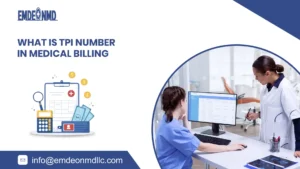1. Introduction to BCBS (Blue Cross Blue Shield)
Blue Cross Blue Shield (BCBS) is one of the largest health insurance providers in the United States, offering coverage for millions of individuals. As a major player in the health insurance industry, BCBS handles vast amounts of medical claims daily. Claims submitted by healthcare providers must include accurate diagnosis codes to ensure proper billing and reimbursement.
2. Understanding Medical Claims Submission
Medical claims are submitted by healthcare providers to insurance companies like BCBS for payment. These claims must contain specific information, including patient details, procedure codes, and most importantly, diagnosis codes. The diagnosis codes explain the medical condition being treated and justify the services or procedures billed. If these codes are inaccurate or invalid, claims are often denied, delayed, or flagged for further review.
3. Importance of Diagnosis Codes in Medical Claims
Diagnosis codes, particularly ICD (International Classification of Diseases) codes, are critical in medical billing. They allow BCBS and other insurers to understand the medical condition that is being treated. Accurate diagnosis coding ensures that healthcare providers are paid appropriately and that patients are billed for the correct services. Incorrect or invalid diagnosis codes can result in claim denials, which impact revenue flow and patient care continuity.
4. Common Causes of Invalid Diagnosis Codes on BCBS Claims
Several issues can cause a diagnosis code to be flagged as invalid on a BCBS claim:
- Typing Errors: Simple data entry errors can result in incorrect codes.
- Code Mismatch: The diagnosis code may not match the treatment or procedure performed, leading to confusion.
- Expired Codes: The diagnosis code used may no longer be valid due to updates in the ICD system.
- System Issues: Sometimes, errors can occur due to software glitches or improper system updates.
- Provider or Payer Errors: Miscommunication between healthcare providers and BCBS can lead to wrong or outdated codes being used.
5. Diagnosing the Problem: Identifying Wrong Diagnosis Codes
Identifying the cause of an invalid diagnosis code in a BCBS claim is the first step in resolving the issue. Common methods include:
- Reviewing Denial Codes: BCBS often includes denial reasons, such as “invalid diagnosis code” or “code not recognized.”
- Cross-Checking ICD Codes: Verify the ICD code submitted by comparing it against the latest ICD-10 code list.
- Checking Code Sequencing: In some cases, the order in which the diagnosis codes are listed can impact the claim’s validity.
- Audit Trail: Many billing systems allow for an audit of the claim to see if any data was changed or input incorrectly.
6. Steps to Correct Diagnosis Code Errors in BCBS Claims
To correct diagnosis code errors and successfully resubmit a BCBS claim:
- Review the Claim Denial: Carefully read the denial or error code provided by BCBS.
- Check the Diagnosis Code: Ensure the code is valid, corresponds to the diagnosis, and is correctly formatted according to ICD-10 standards.
- Correct the Error: Update the diagnosis code in your billing software or submission platform.
- Resubmit the Claim: Once corrected, resubmit the claim through the appropriate electronic submission channel.
- Monitor for Rejection: After resubmission, keep an eye on the status to ensure it is processed correctly.
7. How to Appeal a Denied BCBS Claim Due to Invalid Diagnosis Code
If your BCBS claim is denied because of an invalid diagnosis code, and you believe it was submitted correctly, you can appeal the decision:
- Gather Documentation: Collect all relevant documentation, including patient records, the original claim, and any correspondence from BCBS.
- Submit an Appeal: Fill out an appeal form provided by BCBS, ensuring all required fields are completed.
- Attach Supporting Documents: Include medical records that justify the diagnosis and treatment, as well as a corrected claim.
- Follow-Up: After submitting the appeal, follow up with BCBS to ensure it is being processed.
8. Understanding ICD Codes and Their Role in Diagnosis
ICD codes are standardized codes used globally to classify diseases and health conditions. The current version, ICD-10, contains thousands of codes, each representing a specific diagnosis. Properly using these codes is vital in claim submission, as they must accurately describe the patient’s condition for the insurer to approve the treatment. The specificity of ICD-10 helps reduce errors, but it also makes coding more complex.
9. Ensuring Accurate Coding with ICD-10 for BCBS Claims
To ensure your diagnosis codes are accurate when submitting claims to BCBS:
- Regularly Update Your ICD Code List: The ICD system is frequently updated, so ensure your software and staff are using the most recent codes.
- Train Your Billing Staff: Ongoing education on ICD-10 coding can help reduce the risk of errors.
- Use Code Validation Tools: Many billing platforms have built-in validation tools that can catch potential coding issues before submission.
10. Medical Billing Software and Diagnosis Code Validation
Medical billing software is a crucial tool in preventing invalid diagnosis codes from being submitted to BCBS. Features such as:
- Real-Time Code Validation: Software can alert users to outdated or incorrect codes before submission.
- Auto-Updating Code Libraries: Ensure that the software is updated with the latest ICD codes automatically.
- Claim Scrubbing: Claim scrubbing tools check for common errors and discrepancies, reducing the chances of rejections.
11. Communicating with BCBS for Code Issues
If you’re unsure why a diagnosis code was rejected, contacting BCBS customer service or provider support can help:
- Call Provider Services: Many BCBS plans offer a dedicated helpline for provider billing questions.
- Request a Code Explanation: Ask for a detailed explanation of why the code was rejected.
- Clarify Coding Guidelines: Verify that you’re following BCBS’s specific coding guidelines, as they may differ slightly from general ICD rules.
12. Preventing Future Diagnosis Code Issues
To avoid recurring diagnosis code errors when submitting claims to BCBS:
- Double-Check Codes Before Submission: Always verify that the codes used are accurate and up-to-date.
- Keep Coding Resources on Hand: Use online coding resources or printed ICD-10 guides for quick reference.
- Implement a Review Process: Have a second person review claims for accuracy before submission.
13. Role of Medical Coders in BCBS Claims
Medical coders play a vital role in ensuring claims are accurate. Certified coders are trained to:
- Use ICD-10 Codes Correctly: They are skilled in selecting the right diagnosis codes for each medical case.
- Communicate with Providers: Coders work closely with healthcare providers to ensure the documentation supports the chosen diagnosis codes.
- Reduce Claim Denials: Proper coding helps minimize the chances of claims being denied or rejected.
14. Resources for Accurate Diagnosis Coding
Keeping up with coding changes is essential for avoiding invalid diagnosis codes. Some resources include:
- The Centers for Medicare & Medicaid Services (CMS): CMS provides updates on ICD-10 codes and guidelines.
- American Medical Association (AMA): The AMA offers training and resources for medical coders.
- Coding Books: Keep ICD-10 coding books or online subscriptions updated annually.
15. Conclusion and Summary
Accurate diagnosis coding is essential for submitting successful BCBS claims. Understanding the causes of invalid diagnosis codes, utilizing advanced medical billing software, and maintaining updated ICD-10 knowledge can help avoid claim rejections. By following best practices and implementing preventive measures, healthcare providers can improve their claim acceptance rates and reduce delays in payment.
FAQs
Q1: What is the most common reason for invalid diagnosis codes
Invalid diagnosis codes often result from using outdated ICD codes or entering incorrect codes during claim submission.
Q2: How do I correct a wrong diagnosis code on a BCBS claim?
To correct a wrong diagnosis code, review the denial, correct the code in your billing software, and resubmit the claim.
Q3: How often are ICD-10 codes updated?
ICD-10 codes are updated annually, typically in October. It’s essential to stay updated with the latest changes.
Q4: How long does it take BCBS to process an appeal for a wrong diagnosis code?
The processing time for appeals can vary, but it usually takes between 30 to 60 days for a decision.











